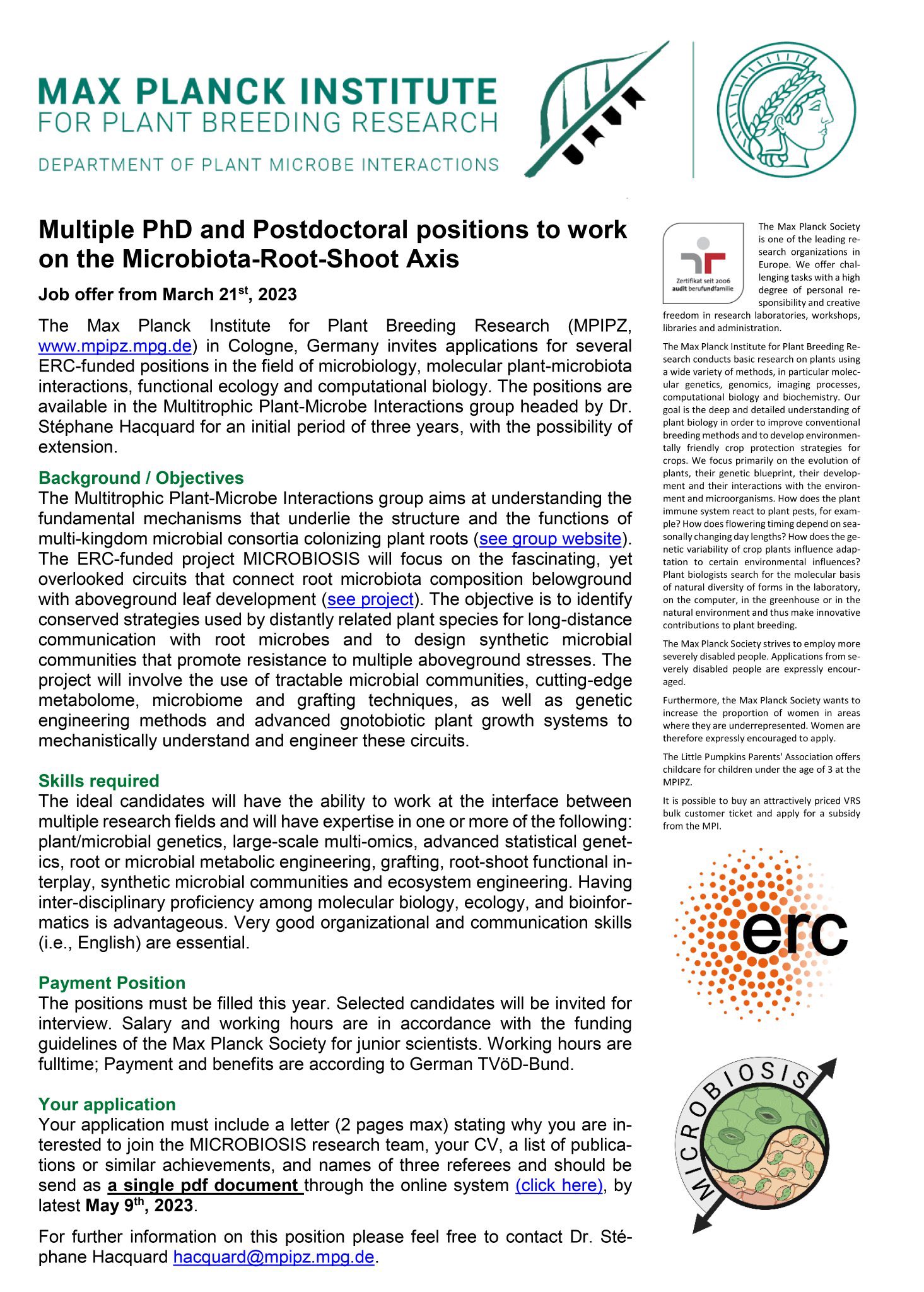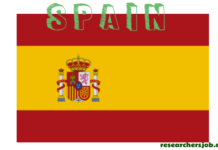Postdoctoral positions in Plant Breeding: The Max Planck Institute for Plant Breeding Research in Cologne, Germany is seeking highly motivated and skilled candidates for multiple PhD and postdoctoral positions in the Multitrophic Plant-Microbe Interactions group headed by Dr. Stéphane Hacquard. The positions are part of the ERC-funded project MICROBIOSIS and will involve research on the Microbiota-Root-Shoot Axis.
Designation: PhD and Postdoctoral Positions
Research Area: Plant Breeding Research
Location: Max Planck Institute for Plant Breeding Research, Cologne, Germany
Eligibility/Qualification: Candidates should have expertise in one or more of the following fields: plant/microbial genetics, large-scale multi-omics, advanced statistical genetics, root or microbial metabolic engineering, grafting, root-shoot functional interplay, synthetic microbial communities, and ecosystem engineering. Interdisciplinary proficiency in molecular biology, ecology, and bioinformatics is advantageous. Strong organizational and communication skills in English are essential.
| Field of expertise | Qualification required |
|---|---|
| Plant/microbial genetics | PhD or postdoctoral degree |
| Large-scale multi-omics | PhD or postdoctoral degree |
| Advanced statistical genetics | PhD or postdoctoral degree |
| Root or microbial metabolic engineering | PhD or postdoctoral degree |
| Grafting | PhD or postdoctoral degree |
| Root-shoot functional interplay | PhD or postdoctoral degree |
| Synthetic microbial communities | PhD or postdoctoral degree |
| Ecosystem engineering | PhD or postdoctoral degree |
| Interdisciplinary proficiency | Advantageous |
| Organizational and communication skills | Essential |
Job Description: The successful candidates will be involved in the ERC-funded project MICROBIOSIS, which aims to understand the fundamental mechanisms underlying the structure and functions of multi-kingdom microbial consortia colonizing plant roots. The objective is to identify conserved strategies used by distantly related plant species for long-distance communication with root microbes and to design synthetic microbial communities that promote resistance to multiple aboveground stresses. The project will involve the use of tractable microbial communities, cutting-edge metabolome, microbiome, and grafting techniques, as well as genetic engineering methods and advanced gnotobiotic plant growth systems to mechanistically understand and engineer these circuits.
Payment and Benefits:
| Working hours | Full-time | | Salary | In accordance with funding guidelines of the Max Planck Society for junior scientists | | Payment and benefits | According to German TVéD-Bund |
Note: The Little Pumpkins Parents’ Association offers childcare for children under the age of 3 at the MPIPZ, and it is possible to buy an attractively priced VRS bulk customer ticket and apply for a subsidy from the MPI. The Max Planck Society encourages applications from severely disabled people and wants to increase the proportion of women in areas where they are underrepresented.
How to Apply: Interested candidates should send a single pdf document including a letter (2 pages max) stating why they are interested in joining the MICROBIOSIS research team, their CV, a list of publications or similar achievements, and names of three referees. Applications must be submitted through the online system, and the last date for submission is May 9, 2023.
Last Date for Apply: 09 May 2023








